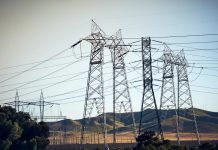Britain’s power regulator this morning opened as promised a month of consultations on how to overhaul the retail price cap, after weeks of its creaking in response to rocketing world wholesale prices for gas.
Running until 17 December, Ofgem’s view-gathering exercise identifies five elements in necessary reform of the three year old cap. Its proposals address in turn
- the extent to which price hikes in wholesale markets have caused the cap to diverge from efficient levels of cost recovery permitted to suppliers
- whether to increase the frequency of the body’s review of the cap beyond its current six-month interval
- more accurate accounting for Covid-19 related costs applicable to vulnerable clients on prepaid meter-tariffs
- again for prepaid customers, the possible introduction of End User Categories (EUCs) for licensees, yielding clearer data on associated costs
- the impact on the cap of climate mitigation requirements in the Energy Company Obligation (ECO)
Protecting consumers’ interests, providing certainty for investors and strengthening the resilience of energy supply are the regulator’s yardsticks for the exercise.
Questions arise around licensees’ recovery of ECO costs because the scheme’s third iteration regulating the activity will expire in March. D-BEIS is consulting about its fourth iteration, but any new scheme will need Parliament’s approval. Ofgem’s consultation finesses the question by anticipating D-BEIS’s new method, as well as including a contingency should Parliamentary approval not arrive in time.
Energy industry leaders have called for a variety of reforms to the Price Cap. ScottishPower boss Keith Anderson called last month for it to be scrapped.
Three weeks ago Octopus founder Greg Jackson suggested on national radio that Ofgem should assess it every quarter, and include in its calculations for the first time not just historical prices but expected future price movements.
After submissions, the regulator plans to publish by February its decisions reached in all but one of the fields. The exception is on Covid-19 cost recovery, where Ofgem intends sharing its conclusions by August.



